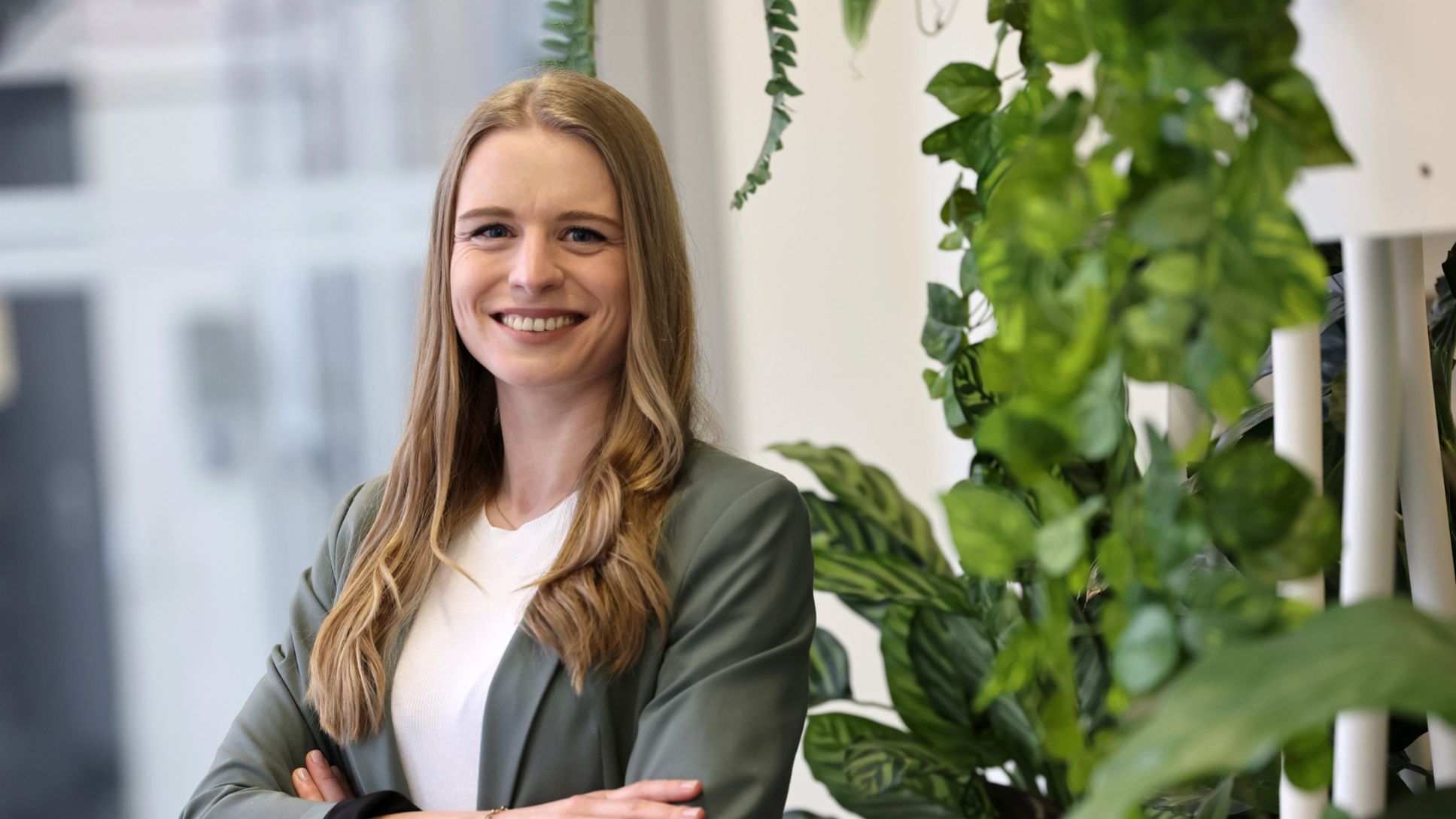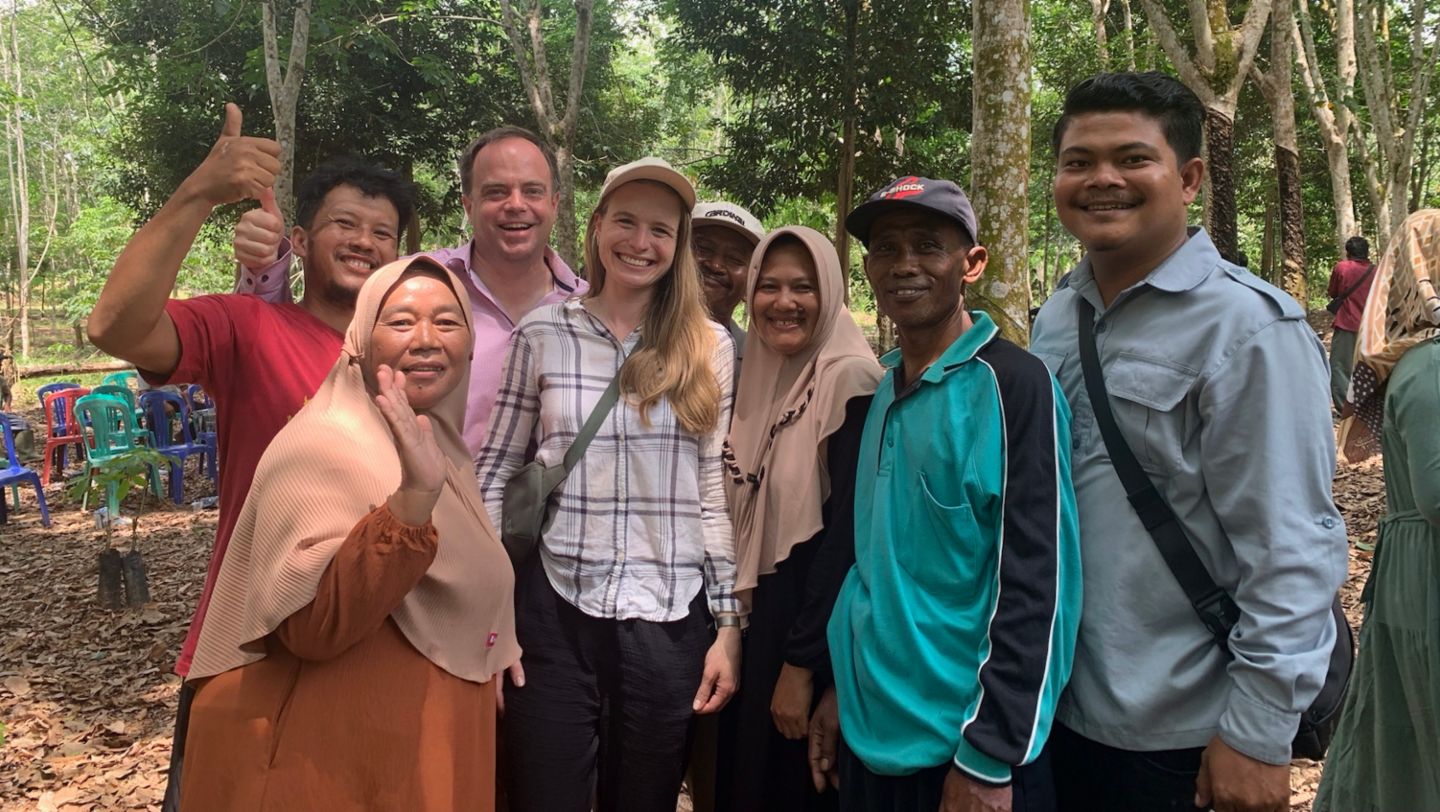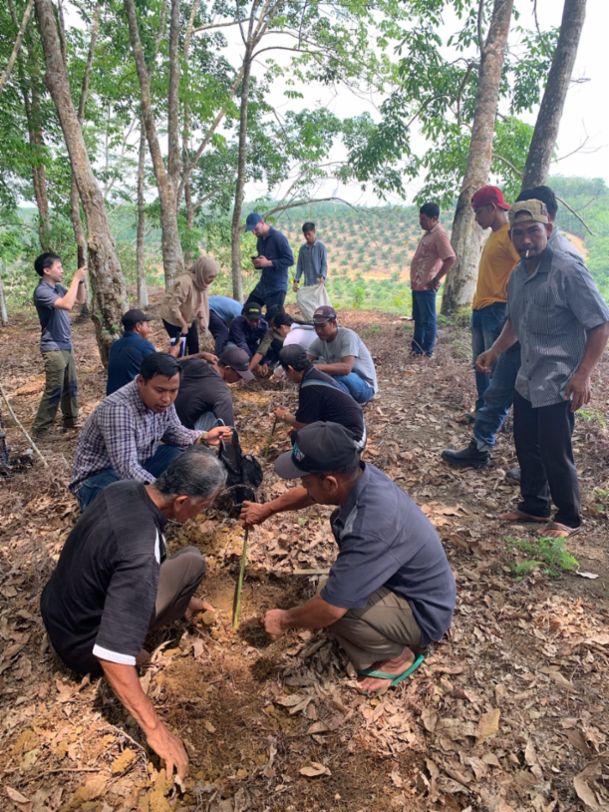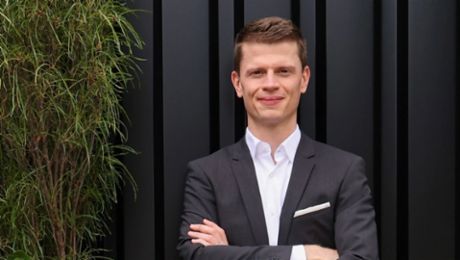You work in Procurement, where you are responsible for sustainable development in the supply chain, particularly regarding raw materials. What is Porsche's responsibility in this area, and why is it personally important for you to make a positive contribution?
Hannah Sicha: Raw materials form the basis of our vehicles – some of which have been identified by the Volkswagen Group as high-risk raw materials from a sustainability perspective. These raw materials are often mined in countries of the Global South, and their extraction can have a high potential for negative impacts on the environment, society or human rights. One raw material where specific risks could be present is natural rubber, an important component of our vehicles' tyres. I focus on this particular raw material: in my daily work, I want to ensure that natural rubber is mined responsibly. Because at Porsche, we see our corporate responsibility as extending beyond our factory gates and into the entire value chain. To fulfil this responsibility, we work with selected supply chain partners to analyze potential sustainability risks along the natural rubber supply chain. In the next step, we develop effective measures to reduce and mitigate these risks. In this context, I traveled to the island of Sumatra in Indonesia in November 2023 and was able to get an impression of the situation on the ground. Indonesia is one of the largest natural rubber producing countries in the world.
How is natural rubber harvested and what is the situation like on the ground?
Hannah Sicha: Natural rubber is harvested from a rubber tree and is cultivated mainly by smallholders in Southeast Asia, among others. The natural rubber plantations are very small, commonly not larger than one hectare, and often start right on the farmers' doorstep. The cultivation regions are usually very rural: to get to the plantations, it could take several hours of travelling by car over bumpy roads and through simple villages. There are not many alternative sources of income in the region: especially palm oil and natural rubber provide for the livelihoods of the people.
Natural rubber is harvested by so-called "tapping". The process starts by making a cut into the bark of the tree. This causes the rubber tree to secrete a milky latex sap, which is collected in containers and coagulates into natural rubber within a short time. Subsequently, the natural rubber is sold to middlemen who transport it to the nearest factory. There, it is further processed and delivered to tyre manufacturers. Car manufacturers such as Porsche then buy the finished tyres - for example from Michelin, our partner in the CASCADE project.
What potential challenges can rubber harvesting pose?
Hannah Sicha: The cultivation and harvesting of natural rubber can have social consequences in particular: The smallholder farmers in the region have scarce alternative sources of income besides rubber extraction. Due to fluctuating prices on the global markets, natural rubber harvesting often results in a low income. In addition, rubber harvesting is a physically strenuous labor. Moreover, cultivation and extraction can be associated with environmental impacts, as natural rubber is often grown in monocultures and with the use of agricultural chemicals. This can lead to biodiversity loss.
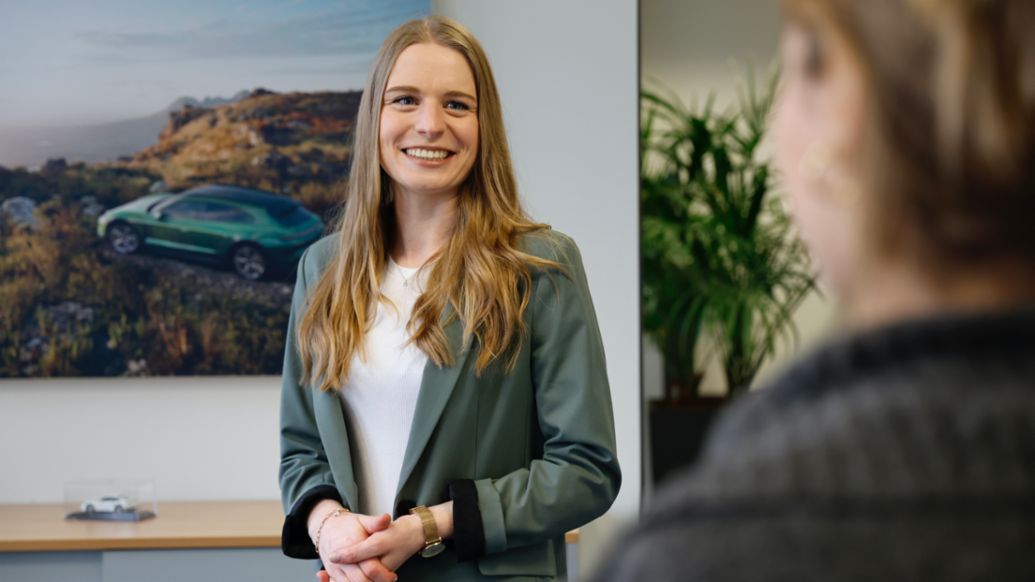
You are tackling this topic as part of the "CASCADE" initiative. What does this project entail?
Hannah Sicha: At Porsche, we are at the very end of the tyre value chain and purchase the finished product from direct suppliers. Nevertheless, we take actions for even more sustainable supply chains - from the extraction of raw materials to the finished tyre. With the "CASCADE" project, we are working together with our supplier Michelin and a local non-governmental organisation to promote the sustainable and responsible extraction of natural rubber. The project includes training on efficient cultivation practices, income diversification and occupational health and safety. Since 2021, more than 1,000 smallholders have been trained as part of the project. Our aim is to empower smallholders to make their cultivation methods more environmentally friendly and efficient and to improve their working and living conditions in the long term. In this way, we can reduce any potential negative impact on the environment while simultaneously providing a better future for farmers in the region.
How have you been able to initiate positive changes in the lives of smallholder farmers through your contribution?
Hannah Sicha: As part of the program, we've introduced selected farmers to more efficient tapping techniques, allowing them to tap trees more gently and efficiently. This has improved the quality of their product, resulting in reduced contamination, among other benefits. Additionally, farmers can harvest more rubber. This enables the smallholders to achieve higher sales prices and a better income. Training in occupational health and safety has also reduced the risk of injuries.
Is there a story that particularly touched you?
Hannah Sicha: In general, my colleagues at Michelin and I were met with a great deal of enthusiasm and gratitude for our program. In personal conversations, I realized that we were able to achieve significant improvements and successes on the ground during the project. One particularly moving story was of a young farmer who told us how the training program had changed her life. She used to work many hours a day on the plantation, which left her hardly any time for her children and put a lot of physical strain on her. Thanks to "CASCADE", she can now harvest the natural rubber more efficiently and use the rest of her time for private commitments and her family. I was very touched to see that we cannot only improve people's financial situation, but also have a positive impact on their daily lives. It makes me proud that we can give something back to the smallholder farmers through "CASCADE" and show them our maximum appreciation for their valuable work - because without them, we wouldn't have any natural rubber for our tyres.
Have you also observed any environmental achievements on the ground?
Hannah Sicha: As part of our initiative, we have introduced the smallholders to "intercropping". This involves planting additional crops such as vanilla or the spice cardamom alongside natural rubber. This way, we can create an additional source of income for the farmers and promote biodiversity at the same time. In this manner, we can also make a contribution to the environment through the project. However, we are aware that to achieve ongoing changes in the environment, we will need to continue providing support for many years and remain patient. Such a development does not happen overnight. Especially, the environmental aspect of our commitment is therefore geared towards the long term.
How will the project continue in the future and what personal value do you derive from it?
Hannah Sicha: I am grateful that we at Porsche were able to plan a project from Stuttgart that could create tangible added value for people on the other side of the world. I would be delighted if we could build on our success and continue the project. This is exactly what I understand by authentic sustainability work: experiencing the situation on the ground, pursuing an open dialogue with local communities and achieving long-term success.
Info
In der Interviewreihe „Perspektive Nachhaltigkeit“ erzählen Porsche-Mitarbeiter von ihren fachspezifischen Themengebieten. Das Interview mit Hannah Sicha ist Teil 11 der Serie.
